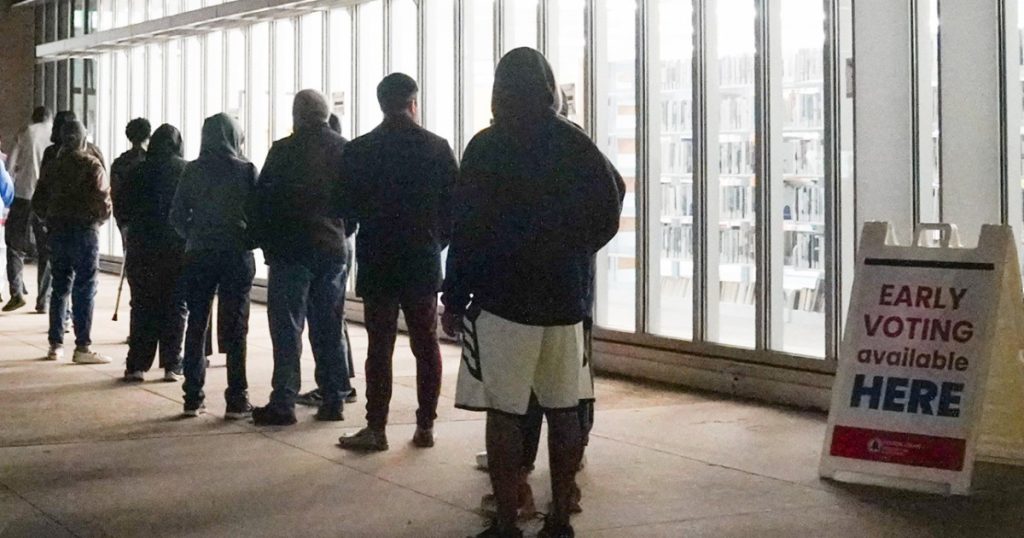A Georgia state judge ruled on Tuesday that county election boards are not allowed to refuse to certify election results. The judge stated that concerns of fraud should be settled in court rather than by county officials acting independently. Former President Donald Trump and his allies had pressured county officials to block the certification of the 2020 election results. Republican members of the boards have since used the process of approving election results as a political battleground. The judge emphasized that the law was clear in stating that county officials must certify the results, using the word “shall” to indicate a command.
Julie Adams, a Republican member of the Fulton County Board of Registration and Elections, had gone to court claiming that she was required to refuse to certify election results if she believed they were incorrect. Adams is a member of former Trump lawyer Cleta Mitchell’s activist group Election Integrity Network. She abstained from voting to certify primary results in Georgia earlier this year, joining a growing number of officials who have refused to certify election results since 2020. This has raised concerns among election experts that county officials might try to block the routine certification of results based on baseless conspiracy theories.
The Republican-controlled Georgia State Election Board voted earlier this year to allow local boards to conduct “reasonable inquiry” into election results, although the rule did not define what constitutes a reasonable inquiry. This has led to worries that county election boards may request extensive information and potentially delay or block the certification of results if they see fit. Georgia election officials welcomed the judge’s ruling, emphasizing the importance of safeguarding elections. The ruling coincided with the first day of in-person early voting in Georgia for the presidential race between Vice President Kamala Harris and Trump. Sterling, the chief operating officer in the Georgia secretary of state’s office, reported a record number of early votes cast on the first day.
The judge’s ruling emphasized the need to follow legal processes in addressing concerns about election results, highlighting the importance of upholding the law. By prohibiting county election boards from unilaterally refusing to certify results, the ruling aims to prevent voter disenfranchisement. The political pressure surrounding the certification process, particularly in the aftermath of the 2020 election, has raised concerns about the integrity of the election system. The ruling is seen as a step towards maintaining the integrity of elections and preventing baseless challenges to election outcomes.
The involvement of political figures and activist groups in challenging election results has complicated the certification process, leading to increased scrutiny of county election boards. The ruling serves as a reminder of the legal obligations of election officials and the need to follow established procedures. By clarifying the role of county boards in certifying results, the ruling aims to prevent disruptions to the electoral process and ensure the accurate representation of voter preferences. The ruling reinforces the principle that elections should be decided through established legal mechanisms, rather than through political interference or unfounded claims.
As Georgia continues to be a key battleground state in national elections, the ruling has significant implications for the future conduct of elections in the state. By upholding the requirement for county election boards to certify results, the ruling strengthens the democratic process and protects the rights of voters. The ruling underscores the importance of transparency and accountability in the electoral system, emphasizing the need for officials to follow the law and prevent the politicization of election procedures. Moving forward, the ruling is likely to have a lasting impact on the conduct of elections in Georgia, setting a precedent for fair and orderly certification processes.


